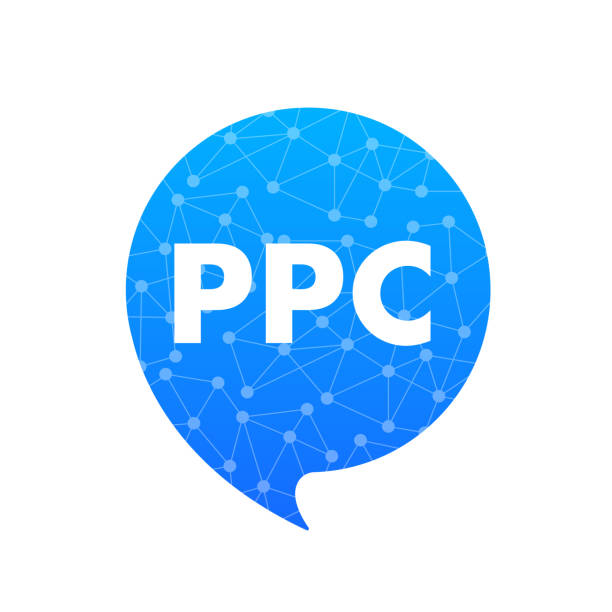Have you ever launched a PPC campaign, only to see disappointing results despite a solid budget? Have you wondered how top-performing marketers consistently get their ads in front of the right audience at the right time? The key lies in mastering PPC keyword research —a fundamental step that can make or break your ad campaign.
But don’t worry; this isn’t rocket science. In this guide, we’ll show you how to approach PPC keyword research with confidence and clarity. So, by the end, you’ll have a roadmap to uncovering high-performing keywords, optimizing your campaigns, and achieving better ROI. Let’s get started!
Why Is PPC Keyword Research So Important?
At its core, PPC keyword research ensures that your ads are seen by the people most likely to engage with them. Additionally, choosing the right keywords is like finding a direct line to your target audience—those who are actively searching for what you offer.
Here’s why PPC keyword research is crucial:
- Relevance Drives Success: Keywords bridge the gap between what users search for and your ad. Also, irrelevant keywords waste ad spend and reduce conversions.
- Optimize Your Budget: Focusing on high-performing, relevant keywords prevents overspending on unqualified clicks.
- Boost Ad Quality: Google rewards ads with relevant keywords by lowering CPCs and improving Quality Scores.
- Gain Competitive Insights: Research helps you understand what’s working for your competitors and how you can outperform them.
When done correctly, PPC keyword research sets the stage for a highly efficient campaign with measurable results.
Step 1: Lay the Groundwork With Customer Insights – PPC Keyword Research
Before diving into tools and metrics, take a moment to think about your audience. What motivates them? What problems are they trying to solve?
How to Gather Customer Insights
- Survey Your Audience: Use email campaigns or social media polls to ask your customers about their needs and search behaviors.
- Check Website Analytics: Tools like Google Analytics reveal which search terms already bring users to your site.
- Review Customer Queries: Analyze customer service inquiries or FAQ sections for common questions or concerns.
This foundational step helps you approach keyword research with a customer-centric mindset, ensuring your campaigns are relevant and engaging.
Step 2: Build a Seed Keyword List
A seed keyword is a simple term or phrase that serves as the starting point for deeper keyword research. For example, if you sell fitness gear, your seed keywords might include “running shoes” or “yoga mats.”
How to Generate Seed Keywords
- Brainstorm Terms Related to Your Business: Start with products, services, or brand-specific terms.
- Explore Niche-Related Topics: Identify broader terms that capture the essence of your market.
- Spy on Competitors: Use competitor websites to identify common keywords in your industry.
Seed keywords provide the foundation for identifying long-tail keywords and understanding your competitive landscape.

Step 3: Expand and Refine Using Keyword Research Tools – PPC Keyword Research
Keyword research tools are essential for moving from a basic list to a data-driven strategy. These tools reveal valuable insights, such as search volume, competition levels, and CPC.
Recommended Tools for PPC Keyword Research
- Google Keyword Planner: Ideal for discovering search volumes and identifying new keyword ideas directly from Google.
- Ahrefs and SEMrush: Comprehensive platforms that analyze keyword performance, competitor campaigns, and backlink opportunities.
- AnswerThePublic: Great for generating question-based keyword ideas to target informational searches.
- Keyword Surfer: A free Chrome extension that offers keyword insights as you search on Google.
- Google Trends: Helps you identify seasonal patterns and trends for your target keywords.
Step 4: Understand Keyword Match Types
Selecting the right match type for your keywords is a critical step in PPC campaigns. Moreover, Google Ads offers three main match types:
Match Types Explained
- Broad Match: Triggers your ad for variations and related searches. While it reaches a larger audience, it risks showing ads for irrelevant queries.
- Phrase Match: Ensures your ad appears only when the search query includes your keyword phrase in the correct order, offering more relevance.
- Exact Match: Displays your ad only for exact keywords or close variations, providing precision but limiting reach.
Use a combination of match types to balance reach and relevance, depending on your campaign goals.
Step 5: Identify and Prioritize High-Intent Keywords – PPC Keyword Research
Not all keywords are created equal. Some carry stronger intent and are more likely to lead to conversions. High-intent keywords often reflect a readiness to act, such as “buy,” “order,” or “get quote.”
How to Spot High-Intent Keywords
- Transactional Phrases: Keywords like “buy,” “discount,” or “free shipping.”
- Local Keywords: Include phrases like “near me” or specific city names.
- Product Comparisons: Terms like “best,” “vs,” or “top-rated.”
By focusing on high-intent keywords, you’ll attract users who are further along in the buyer journey, leading to higher ROI.
Step 6: Develop a Strong Negative Keyword Strategy
Negative keywords allow you to exclude irrelevant search terms, preventing wasted clicks and improving ad targeting.

Examples of Negative Keywords
- If you sell luxury furniture, exclude terms like “cheap” or “DIY.”
- For B2B services, exclude consumer-focused terms like “free trial” if you don’t offer one.
Updating your negative keyword list regularly ensures your campaign stays focused and budget-efficient.
Step 7: Optimize Campaigns With Ongoing Analysis – PPC Keyword Research
Keyword research doesn’t end once your ads are live. So, continuous optimization is necessary to maintain performance.
Key Metrics to Analyze
- Impressions: How often your ad appears in search results.
- CPC Trends: Identify shifts in competition and adjust bids accordingly.
- Conversion Tracking: Determine which keywords drive the most sales or leads.
Regularly reviewing your campaign performance allows you to capitalize on opportunities and eliminate inefficiencies.
Step 8: Use Geo-Targeted Keywords for Local Campaigns
For businesses targeting specific regions, geo-targeted keywords can boost relevance and drive more localized traffic.
Tips for Geo-Targeting
- Include city, state, or neighborhood names in your keywords (e.g., “plumber in Austin”).
- Tailor ad copy to highlight local offerings or testimonials.
- Use location-specific landing pages to enhance user experience.
Geo-targeting helps you compete effectively within your service area and reduces irrelevant clicks.
Step 9: Experiment With Voice Search Keywords – PPC Keyword Research
With the rise of smart devices, voice search is becoming increasingly important in PPC campaigns. Additionally, voice searches are often conversational and longer, aligning with question-based queries.
How to Adapt for Voice Search
- Focus on long-tail keywords and natural language phrases.
- Target question-based terms like “how to,” “what is,” or “where can I.”
- Include local search terms, as many voice searches are location-driven.
Incorporating voice search strategies can future-proof your campaigns and reach more tech-savvy users.

Common Mistakes to Avoid
Even the best campaigns can stumble without careful planning. So, avoid these pitfalls:
- Overlooking long-tail keywords for broad terms.
- Ignoring seasonal trends and changes in search behavior.
- Neglecting to refresh your negative keyword list.
- Relying too heavily on one match type.
By steering clear of these errors, you’ll keep your campaigns on a steady path to success.
Conclusion: Become a PPC Keyword Research Pro
Mastering PPC keyword research takes time, but it’s one of the most rewarding skills for any marketer. Additionally, by understanding your audience, leveraging powerful tools, and continuously optimizing your campaigns, you can outsmart competitors and achieve exceptional results.
So, are you ready to transform your PPC campaigns? Start today with these strategies, and watch as your ads perform better than ever before!









[…] Pay Per Click (PPC) Marketing The Incredible Benefits of PPC for Small Business Growth Pay Per Click (PPC) Marketing Navigate PPC Keyword Research Like a Pro […]